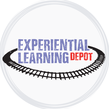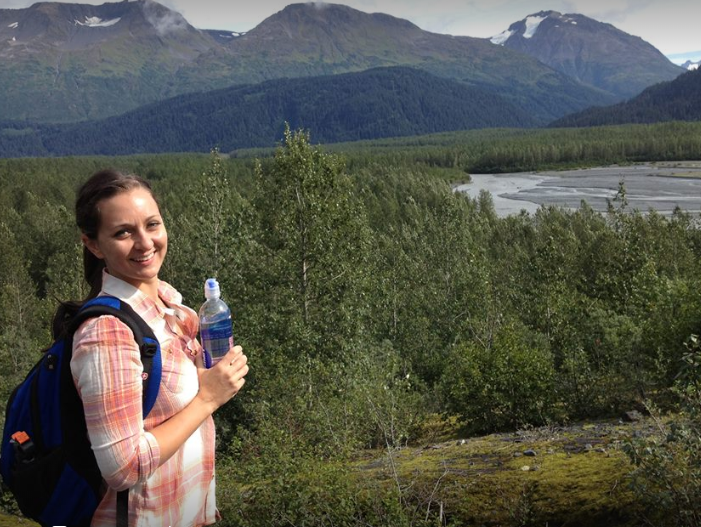|
Experiential learning resources for the innovative educator
I have been an experiential science educator for almost 15 years. I have a background in field ecology but eventually left the career to teach high school science in an experiential classroom, which is where I’ve been for the bulk of my professional life. But what does that mean?
Even though my experiences in the field were experiential, even though I learned about field ecology through the experiential learning cycle myself, I still struggled to shift away from a traditional mindset in my science classroom.
That frame of mind was deeply ingrained in my psyche from my own academic experiences as well as the teacher training that I received. The transition and ability to employ experiential science in my classroom came in the form of a lot of trial and error, and I can now say that my students learn science experientially 95% of the time. What is experiential science and how do you apply experiential learning in a science classroom or homeschool learning environment? What are some examples of experiential science in the classroom? Answers, Tips, and Tricks to Experiential Science in the Classroom
What is Experiential Learning?
Experiential learning is a philosophy, right? It’s a style of learning, an approach that is active, real-world, and gets students involved in the concepts. It is a learning theory that includes specific attributes unique to that theory.
Students have experiences, they inquire, ask questions and make observations about those experiences, they reflect on the experiences, conceptualize them, and then act on them to make sense of the experiences. Learning is a cycle, always in progress, ever-evolving, challenging assumptions, and building upon students' prior perceptions of the world.
This book is an affiliate link. If you purchase it through this link I will receive a small commission (at no cost to you). I only endorse books that I have personally read and applied to education.
What is Experiential Science?
So what is experiential science anyway? It is simply applying those experiential learning elements as they relate to science concepts. On the upside, science is hands-on and experimental to begin with, which really sets the stage or offers this blank canvas for student-centered learning opportunities.
But with that said, I think it is important to mention what experiential science IS NOT. Experiential science in the classroom is not a recipe lab. It is not a lecture. It is not a worksheet that drills memorization of scientific vocabulary. You may add traditional learning strategies like this as supplements to an experiential science experience, but alone, these strategies are not experiential.
What are Examples of Experiential Science in a Classroom Setting?
Let’s look at the recipe lab as an example. Yes, labs are hands-on. But if they are experiments that have steps already in place designed to scaffold students to teacher-desired outcomes, then this is not experiential science. It is just hands-on learning.
Experiential science on the other hand might start with students experiencing science in action; they have a concrete experience (ex: a demo, hiking through a prairie, observing animal behaviors on a field trip to the zoo, etc.) They observe and ask questions about the experience, formulating the foundation for a student-directed experimental inquiry experience. Students reflect on the experience, possibly noting a discrepancy between the experience that they had (ex: observing a thermohaline circulation demo) and what they had believed to be true up until that point (ex: not observing the outcomes that they expected). Experiential learning can often start with an observed problem, questioning phenomena, or simply a disruption to an assumption about the world. So students dig deeper into their observations and questions, explore existing research or scientific publications that relate to their questions and ideas, talk to experts about the concepts, and more. They form and visualize concepts by learning more about those concepts in a real-world context. At this point, students could take what they’ve conceptualized through reflection and research and check their understanding or fortify new information through experimentation. Students develop and carry out open-inquiry experiments, asking their own testable questions, designing their own experiments, and conducting their own experiments. Students construct knowledge in their own way from having and reflecting on experiences. This open-inquiry experience is student-centered and directed, personalized, reflective, real-world, community-based, and authentic, all important components of experiential science. Now compare that to an experiment that has all of the steps and outcomes predetermined by the instructor with the intention of getting students to arrive at the “correct” answer. That is not effective classroom science, in my opinion, and it is not experiential science.
If you're looking for some help getting started, grab my free experiential learning tools mini-bundle. It includes a mind map to help you design and plan experiential science activities and an implementation spreadsheet for experiential learning experiences, including a sheet for experimental inquiry.
What are Some Experiential Science Activity Types?
There are certain types of experiential learning activities that I like to employ in the science classroom more than others, and every one of them could be used as a template for just about any scientific concept you are trying to cover. Here are a few of my favorites:
I have tool kits for each of these activities. Check out the bundle or pick and choose individual tool kits that fit the needs of your students.
There are a few things that all of these learning experiences have in common. They organically infuse experiential learning elements so that you don’t have to reinvent the wheel.
There are so many benefits to taking an experiential science approach in your classroom or homeschool. Because it’s personalized, students are intrinsically motivated to learn. Because it’s student-centered and directed, your students will be more invested in experiences and outcomes. Because it’s real-world your students can make sense of complex and abstract scientific concepts. Because it’s authentic and community-based, students learn essential skills in addition to content knowledge. Experiential science for the win!
So what is going to be your first step toward an experiential science classroom or homeschool? Let me know! And if you have questions, email me anytime. Good luck!
High School Experiential Science Resources
More Experiential Science Blog Posts
Join our experiential learning Facebook Group!
Did you know there is an experiential learning Facebook group? Check that out - Experiential Learning Community for K12 Teachers - and join in the discussion about experiential learning ideas such as real world learning in the classroom. Let's get social! Follow Experiential Learning Depot on Pinterest, Facebook, Youtube, and Instagram for more on experiential education. Observe. Question. Explore. Share.
0 Comments
Your comment will be posted after it is approved.
Leave a Reply. |
Blog IntentTo provide innovative educational resources for educators, parents, and students, that go beyond lecture and worksheets. AuthorSara Segar, experiential life-science educator and advisor, curriculum writer, and mother of two. Categories
All
|














 RSS Feed
RSS Feed